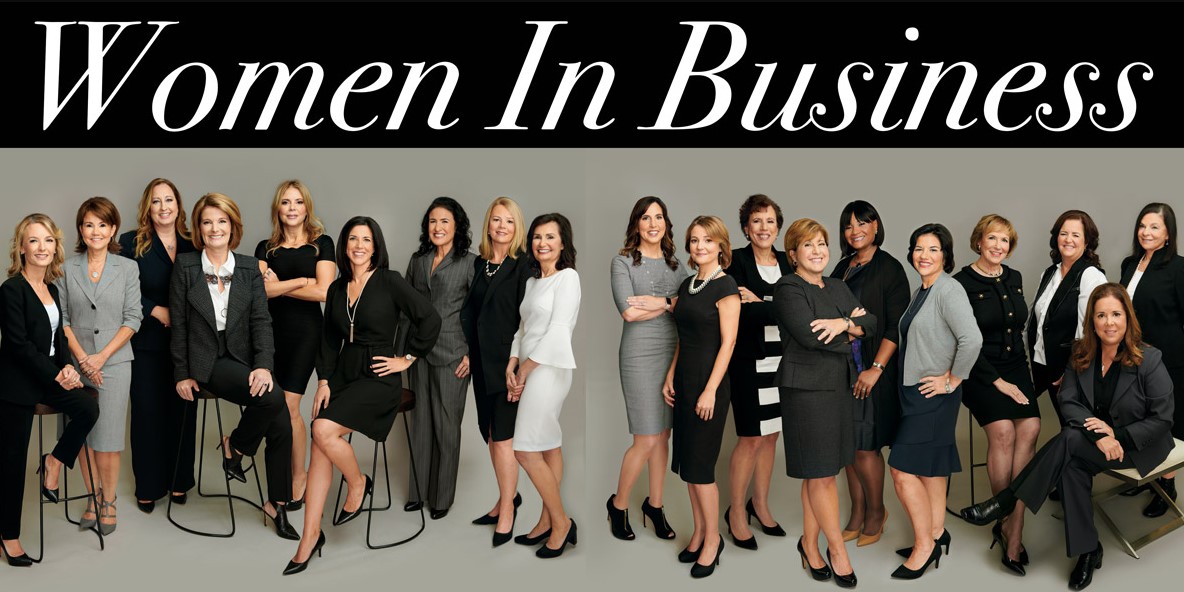How Women Are Rising in Business
How Women Are Rising in Business
Women in Business: The phrase women in business covers the attendance of women in leadership roles in exchange. Women are underrepresented and undervalued in corporate leadership, making up only 4.8% of CEOs in S&P 500 companies, despite making up 44.7% of total members.
It’s a welcoming space for women entrepreneurs, where collaboration, consensus and diversification rule. Much of it is virtual, as more and more women opt to do business online. The number of female creators and owners has increased dramatically in recent years, and the impact of corporations with women at the helm is noteworthy in terms of revenues and hiring.
A 2018 report by the SCORE Association, which provides free mentoring service for small business owners, shows women-owned enterprises increased 45 percent—five times faster than the communal average—from 2007 to 2016, comprising 39 percent of America’s 28 million small businesses, employing nearly 9 million people and spawning more than $1.6 trillion in revenue.

Grants For Women In Business
The time has come for women leaders to take advantage of our greatness. Today, more than ever before, women in business are taking their rightful places as global leaders. Corresponding to 2019 Grant Thornton exploration, a record high of 29% of senior management roles are held by women today. Additionally, 87% of businesses around the world now have at least one woman in a senior management position.
As many of us know and have experienced, the climb to the top is often fraught with stumbling blocks for women. I’ve found that many people in our company think of successful women as cold in employment, while also expecting them to be warm and nurturing in the home. If that’s the case, is it any wonder that women face provocations as they work to reach the top?
Today, I own a company called Femme Sauvage Collective Inc., an enterprise dedicated to assisting women business leaders and managers in becoming more financially and emotionally intelligent.
In her book, Women Who Run With The Wolves, Clarissa Pinkola Estés searches what I consider to be a femme sauvage: a woman who is integrating all of who she is through impassioned intelligence to build a corporation that is highly successful and meaningful to her and the people she serves.
Women In Business Conference

Betsy Dougert, SCORE’s director of conversations, says, “We follow Small Business Government guidelines of defining small employments as firms with fewer than 500 employees and less than $10 million in revenue. SCORE also classifies employments with 0-4 employees as microbusinesses. The vast preponderance of our 350,000-plus clients are microbusiness proprietors…. The average business starts with $5,000 or less in capital.”
“The 2018 State of Women-Owned Employments Report” from American Express, covering 2007 to 2018, finds women running 40 percent of firms of all sizes—an increase of 58 percent—and engaging 9.2 million people, with revenues of $1.8 trillion. Women of color narrative for 64 percent of startups, with African Americans in the lead, followed by Latinas and Asian Americans.
American Express associates the rise in female entrepreneurship to both opportunity and necessity. Women surveyed by SCORE mention four major motivations: having the experience to start a successful resource, financial readiness, following a passion and desiring flexibility in their lives.
Women In Business Quotes
With an increasing number of well-known organizations like IBM, General Motors, and Mondelēz International appointing female CEOs, the trend towards women in leadership positions seems to be on the rise. In fact, there are more women running Fortune 500 businesses today than at any point in the 63-year history of the Fortune 500.
However, when put in context, that’s still only 6.4% of these leading companies. And with recent high-profile stories revealing the BBC’s gender pay gap and tales of female entrepreneurs citing an imaginary male co-founder for credibility, it’s clear women’s inequality is still a big business problem.
We recently hosted a webinar with a panel of business women at different stages in their careers to discuss these issues. To hear their advice and learn from their own personal stories about combating gender stereotypes and championing the cause of women in the workplace, you can watch the webinar below. Or read on for an overview of the advantages, challenges, and opportunities for women in business in 2017.
Scholarships For Women In Business
Our webinar panel consisted of Tessa Misiaszek, Associate Dean at Hult and professor of international marketing and entrepreneurship on our Boston campus. Tessa comes to us with an incredible wealth of business experience, having served as the CEO of Empathetics, run a number of start-ups, and worked as a consultant for Korn/Ferry International. She was joined by current Hult student, Rosey Singh, who has worked in the banking industry for 10 years and is the current president and co-founder of the Gender Equality in Leadership Club on the San Francisco campus.
Justine Stacey, an alumna of our MBA program, also joined. Before earning her MBA, Justine spent several years working as an advocate for women’s health and empowerment around the world as VP for Girl’s Globe. Now, Justine is a marketing strategy manager for a leading financial company.
Diversity—from gender diversity to culture, age, and race—has been shown to foster creativity and innovation. From PricewaterhouseCooper, to Disney and L’Oreal, organizations across industries are seeking to prioritize and benefit from a diverse and inclusive work environment.
Men and women will inevitably have different experiences and backgrounds, which shape their approach to business. Challenging each other and collaborating with people who think differently can breed creativity and promote the innovative ideas that push organizations forward.
Women In Business Grants
Women of all ages are launching businesses. While the majority—76 percent in SCORE’s report and 65.5 percent in the one from American Express—are 35 to 64, millennials and seniors are also making their mark.
Although most found businesses in sectors like retail, health care, education, arts, travel, food services, marketing and other professional services, some choose traditionally male fields like construction and manufacturing. While women starting businesses in STEM (science, technology, engineering and mathematics) are still rare, that’s changing thanks to a boost from two bills signed into law in 2017, the Empowering Women in Entrepreneurship Act and the INSPIRE Women Act.
Dougert wants female entrepreneurs in all fields to know that SCORE’s 10,700 volunteer mentors have their backs every step of the way. “We’re here for the life of your business,” she says, adding that “all resources are free because they’re prepaid with your tax dollars.”
Modern female entrepreneurs lead from feminine strengths like effective networking, empathy and an inclusive, holistic mindset to grapple with issues as universal as the future of Earth and as personal as the day-to-day challenges of being a woman. Some even believe that motherhood, which once diverted careers to the “mommy track,” makes them more productive in business.
Pioneering futurist, economist and author Hazel Henderson sees this as a great time for female entrepreneurs: “One of the advantages women have now is that we’re very good at improvising, and we’ve learned that there are all kinds of niches, that you don’t have to be a big, powerful, well-capitalized organization to provide a good service.”
Henderson, a self-taught expert with four honorary doctorates and several best-sellers to her credit, has advised government agencies including the National Science Foundation. With a passion for “building the green, clean, knowledge-rich future,” she founded her company, Ethical Markets Media, in 2004, when she was 72. “I have a lot of fun,” she says. “We are a typical global, internet-based media company, operated out of the garage in my house.” Her St. Augustine, Florida home also boasts a studio from which she broadcasts a TV series and distributes it to business schools and public libraries around the world.
Women In Business Ucsd
Growing up in a typical British family, Henderson noticed the authoritarian way her CEO father managed money, keeping her smart, competent mother at home and short of cash. Later, studying economic theory, she saw the same patriarchal thinking in texts most financial managers relied on: a narrow view of market risk and interest-rate risk, ignoring big-picture risks like income inequality, climate change and water shortages.
She teaches financial managers to shift from stranded fossil fuel assets, realize the benefits of what she calls “ethical biomimicry finance, operating your company on nature’s principles” and act in the best interests not only of shareholders but also of stakeholders—employees, customers, the community and the planet. Ethical Markets Media operates as a socially responsible B corporation and tracks trillions of dollars of investments in green sectors worldwide.
Henderson says the global view comes easily to female entrepreneurs: “Women connect all the dots.… Almost every company that’s forward-looking, looking into all these issues and how to turn them into positive opportunities, tends to be led by a woman.”
She advises women starting businesses, “Don’t take outside investment unless you absolutely need it,” and even then, “Make sure investors are totally aligned with your values and understand your business plan in its long-term goals and purposes.
